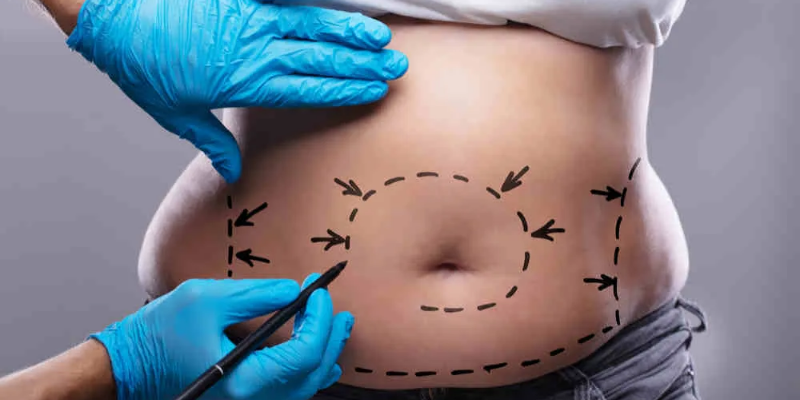Weightloss Surgery SC Medicaid
For some people, the only way to deal with their extreme obesity is to have weight loss surgery. Many people have tried other ways to lose weight and keep it off, but they haven’t worked. Getting surgery may be the only way to get to a healthy weight and live a healthy life. These surgeries can be pricey, and many people may not be able to pay for them. The price of bariatric surgery depends on the type of surgery, the patient, and where the surgery takes place. However, with Weightloss Surgery SC Medicaid, you can get your surgery without paying any money.
Most of the time, Medicaid does cover weight loss surgery, as long as the patient meets the requirements. Each state’s coverage is different, so you’ll need to check with your state to find out what it is. The Medicaid coverage rules don’t say anything about bariatric surgery, but it’s usually taken care of on a case-by-case basis. For the surgery to be covered, the patient does have to meet certain requirements. Working with your doctor is part of the process of getting Medicaid to cover your weight loss surgery.
Weightloss Surgery SC Medicaid Coverage
Whenever coverage is needed Most of the time, Medicaid does cover gastric bypass, gastric sleeve, and Lap-Band surgery. These are some of the most common surgeries, and Medicaid is more likely to agree that they are necessary to save a patient’s life.
With gastric bypass, a part of your intestine is bypassed and food goes straight to your lower intestine. This procedure also makes the stomach smaller, so a person can eat less. If a part of digestion is skipped, the body won’t be able to take in as many calories or nutrients. This, along with eating less, will cause you to lose weight.
Will Weightloss Surgery SC Medicaid Cover Lap Band?
In Lap-Band surgery, a band made of silicon and filled with balloons is wrapped around the top of the stomach. This leaves less room for food and a smaller opening for food to go into the stomach. The surgery is done with a laparoscope and is less invasive than other surgeries. The band can be changed, and the process can be done in reverse.
Gastric sleeve surgery is a way to make the stomach smaller by making it look like a sleeve. This makes the space for the food to sit in the intestines smaller and also moves the food down through the intestines. This procedure cuts down on how much food a person can eat and is usually not thought to be reversible.
Most of the time, if they agree to pay for the patient’s surgery, they will pay for the whole thing. If you aren’t ready, getting insurance can be a frustrating process. To get the coverage you need, you’ll need to be patient and follow some steps.
How Much Of The Surgery Will Medicaid Pay For?
Most of the time, if your Medicaid covers the surgery, you will have full coverage. If there are parts of the surgery that Medicaid doesn’t cover, you may be able to get help from other insurance or gap insurance. This is if Medicaid has already given you permission to have the surgery. This could make it easier to get coverage from other insurance companies for any remaining balance.
If Medicaid in your state covers bariatric surgery, the first thing you should do to get approval for your case is to talk to your doctor. Most of the time, for Medicaid to cover surgery, there has to be a medical reason for it. Your doctor must be able to tell them everything they need to know about your situation and why you need surgery. The doctor can then send you to a qualified surgeon for an evaluation.
When you meet with a surgeon who has been approved, they will go over the basics of the surgery and talk to you about your choices. Once you have decided, they can run different tests to see if you are healthy enough for surgery and then ask the Medicaid office to approve the surgery before it happens. This process can take a long time, so you should try to be patient.
How To Get Weightloss Surgery SC Medicaid Approval?
Medicaid and the surgeon may require you to go to classes where you learn about the surgery, how to eat and exercise right, and how to change your life after the surgery. This is often needed before they will let you have the surgery or start the process. This is to make sure you know exactly what will happen and what you need to do to be successful after the surgery.
Also, Medicaid may agree to pay for the surgery as long as certain conditions are met. This could involve more testing, more classes, or more information added to the file. The surgeon will be able to help you meet these needs.
If Medicaid agrees to pay for the surgery, the doctor will probably need to make sure you are healthy enough to have surgery at that time. This could involve x-rays, blood tests, and other medical work. The surgery will then be scheduled, and you’ll be on your way to reaching your goal weight.
Is Weightloss Surgery Medicaid Insurance Valid In Every State?
It is hard to know what, if any, part of your surgery Medicaid will pay for in your area. You can check with the Medicaid office in your area to find out where you can find this information. If you have to use a surgeon who has been approved, make sure you have a list of these surgeons. Each office should be happy to help you find these answers by giving you useful information.
Basically, if your doctor says you need weight loss surgery to improve your health or avoid a disaster, Medicaid in your area may be willing to pay for it.
Also, one of the requirements for Medicaid to pay for your surgery is that you have to go to a Center for Excellence for your weight loss surgery. Accreditation from the Bariatric Center for Excellence is meant to show which bariatric surgery centers have reached a high level of excellence in giving bariatric surgery. So, to make sure you get the best care, Medicaid requires you to go to one of these specific centers.
Are Weight Loss Surgery Scars Manageable?
The good news is that weight loss surgery scars are often very manageable and can be easily made less visible. Depending on the type of surgery performed, you can manage your scars through regular creams and ointments and stay out of direct sunlight. In some cases, it is possible to reduce the visibility of your scars over time with proactive scar care and stretches or massage techniques. If your scars require invasive options, different types of plastic surgery after weight loss surgery can minimize scarring, such as using dissolvable sutures or lasers to help break down scar tissue. Ultimately, it’s essential to work with your doctor to devise a plan for managing the surgery scars that work best for you. With patience and dedication to scar management techniques, you can ensure that any visible marks from weight loss surgery will fade into the background of your life.

You should also note that certain lifestyle habits can contribute towards improving the appearance of surgical scars, such as regularly applying sunscreen when outside or avoiding extreme temperatures like hot tubs or saunas where possible. To learn more about how to deal with weight loss surgery scars, consult a doctor today.



